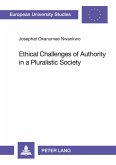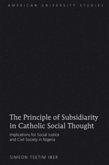From the days of the early Church Christians have forged what has seemed to be a fitting kinship between their suffering and Christ's Passion. As a result, Christians are sometimes guided by the impression that simply believing hard enough - «Have faith!» - would somehow trickle down to change their hardship. However, having faith in God does not automatically translate into know-how or wisdom with suffering. Sadly, many of us seem to improvise by trial and error with one of life's most formative experiences.
This book sets out to explore an ethic of suffering; that is, learning how to locate the suffering on an ethical grid and, if possible, learning how to take steps to conspire with God who always desires our healing and freedom. The first part introduces the reader to some of the main theoretical and practical difficulties of suffering and Christian life through the work of three theologians who bring complimentary perspectives to the subject. The second part expands on some of the issues they raise with chapters on the properties of suffering, questions about evil, the effects of suffering on character and growth, suffering's social and communal dimensions, the struggle for meaning and God, and the deeper moral implications of the imitation of Christ.
This book sets out to explore an ethic of suffering; that is, learning how to locate the suffering on an ethical grid and, if possible, learning how to take steps to conspire with God who always desires our healing and freedom. The first part introduces the reader to some of the main theoretical and practical difficulties of suffering and Christian life through the work of three theologians who bring complimentary perspectives to the subject. The second part expands on some of the issues they raise with chapters on the properties of suffering, questions about evil, the effects of suffering on character and growth, suffering's social and communal dimensions, the struggle for meaning and God, and the deeper moral implications of the imitation of Christ.








